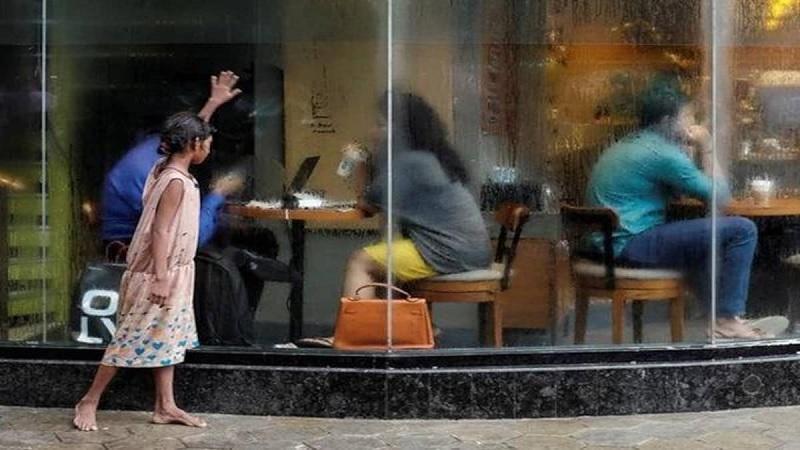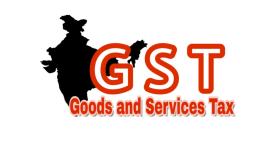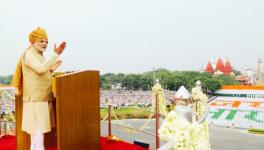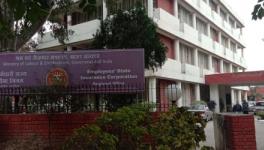India’s Economic System Rigged in Favour of the Super-Rich, Says Oxfam Report

Image courtesy:businesstoday.in
While 84% of households in India suffered a decline in their income in a year marked by the tremendous loss of life and livelihoods, the number of Indian billionaires grew from 102 to 142, revealed the India Supplement to the global Oxfam Davos report of 2022, Inequality Kills. The report was published on Sunday, January 16, ahead of the World Economic Forum’s Davos Agenda.
The report states that just a 1% wealth tax on 98 wealthiest billionaire families in India can finance Ayushman Bharat, the government of India's national public health insurance fund, for more than seven years. It added that the collective wealth of India's 100 wealthiest people hit a record high of INR 57.3 lakh crore (USD 775 billion) in 2021.
The report pointed out that in India, during the pandemic — between March 2020 and November 30, 2021 — the wealth of billionaires increased from Rs 23.14 lakh crore to Rs 53.16 lakh crore. At the same time, more than 4.6 crore Indians are estimated to have fallen into extreme poverty in 2020, which is nearly half of the global new poor according to the United Nations. “The stark wealth inequality in India is a result of an economic system rigged in favour of the super-rich over the poor and marginalised,” the report said.
Amitabh Behar, the CEO, Oxfam India, said, "Oxfam's global briefing points to the stark reality of inequality contributing to the death of at least 21,000 people each day, or one person every four seconds. The pandemic has set gender parity from 99 years to 135 years. Women collectively lost INR 59.11 lakh crore (USD 800 billion) in earnings in 2020, with 1.3 crore fewer women in work now than in 2019. It has never been so important to start righting the wrongs of this obscene inequality by targeting extreme wealth through taxation and getting that money back into the real economy to save lives.”
CONTINUING DEPENDENCE ON INDIRECT TAXES
The report pointed out that historically, India has always been dependent more on indirect taxes. In 2000 the percentage of indirect taxation in the total tax revenue was 63.69%. "Sadly, even during the pandemic, this trend continued as the government revenue remained highly dependent on the indirect taxes —especially the tax levied on the sale and manufacture of goods and services that ordinary Indians depend upon,” it said.
The Oxfam India briefing shows the trend that indirect tax as a share of the Union government revenue has been increasing when there is a decline in the proportion of corporate tax for the same in the last four years. The additional tax imposed on fuel has risen 33% in the first six months of 2020-21 as compared to the previous year and is 79% more than pre-Covid levels, it pointed out.
The wealth tax for the super-rich was abolished in 2016. Corporate taxes were lowered from 30% to 22% to attract investment last year, which has resulted in a loss of Rs 1.5 lakh crore, which has contributed to the increase in India's fiscal deficit. "These trends show that the poor, marginalised, and the middle class paid high taxes despite going through the raging pandemic while the rich made more money without paying their fair share," Oxfam said.
The report said, “Not only were indirect taxes used to fund India's COVID-19 recovery, but the Centre also delegated its responsibilities under the Disaster Management Act, 2005 to State governments. Unfortunately, India's State governments were not in a position to deal with the situation without the necessary infrastructure, both human and physical, and adequate financial resources.”
It added, "Data shows that Union government policies were, and continue to be, structurally so designed as to undermine India's State-led federal structure by creating a dependency on the Central government for technical expertise and financial support. Despite health being a State subject, the Centre retained more resources in non-divisible pools rather than devolving them to manage the pandemic."
LACK OF FUNDS FOR PUBLIC SERVICES
The India Supplement highlighted the de-prioritisation of education and health in the Union government budget when these two services were needed the most. Allocation towards health in 2021-22 saw a decline of 10% from the previous year in the Union budget, while the allocation towards education in 2021-22 saw an increase of only 10% from the previous year. As a percentage of GDP, health spending has remained abysmally low at 1.2 to 1.6% and increased only by 0.09% over the last 22 years. As a percentage of GDP, education spending has remained low at 3% and increased only 0.07% over the last 18 years.
Expenditure on social security schemes for workers under the Ministry of Labour and Employment and the centrally sponsored scheme of the National Social Assistance Programme is abysmally low at 0.6% of total expenditure in 2021-22, a decline from 1.5% of total spending from the previous year. "With 93 percent of the nation's workforce comprising of informal employment, there has been little success in bringing them under the ambit of formal employment, which would give them various benefits like paid leaves, health insurance, paid maternity leaves and pension,” the report said.
PRIVATISATION OF BASIC SERVICES
The report also pointed out that the policy push for privatisation of healthcare and education in India further acts as enablers of inequality. "The growing privatisation of school education disproportionately affects country's poor and marginalised people, particularly women and girls,” it said.
The India supplement shows that the high cost of private healthcare affects marginalised communities, mainly due to its high costs and further widens inequalities. Data from the National Sample Survey (NSS) 2017-18 shows that Out-of-Pocket Expenditure (OOPE) in private hospitals is almost six times that in public hospitals for inpatient care and two or three times higher for outpatient care. The average OOPE in India is at 62.67%, while the global average is at 18.12%.
WHAT IS THE WAY FORWARD?
Oxfam India has made several recommendations about measures that should be implemented. It said that India needs to track policy impact better by improving mechanisms for its measurement. “There is an immediate requirement to start disaggregating more public statistics by income and introduce a regular collection of data on income and wealth inequality while ensuring that this data is made freely available in the public domain," it said.
It also urged the Union government to re-introduce a wealth tax to generate much-needed resources to fund the recovery from the pandemic. It said, “Tax compliance by wealthy individuals must also be drastically improved, instead of imposing indirect taxes on India’s poor and middle class. Evidence shows that the threat of an audit shows the most pronounced effect on compliance and can be complemented by shaming tax evaders or by the imposition of penalties and should take precedence over a reduction indirect tax rates which has ambiguous effects on compliance and adverse effects on revenue.”
Oxfam India also highlighted the importance of generating revenue to invest in education and healthcare. The report pointed out that a temporary 1% surcharge on the wealthiest 10% of the population could help raise an additional Rs 8.7 lakh crore, utilising the education and health budget.
Get the latest reports & analysis with people's perspective on Protests, movements & deep analytical videos, discussions of the current affairs in your Telegram app. Subscribe to NewsClick's Telegram channel & get Real-Time updates on stories, as they get published on our website.
























